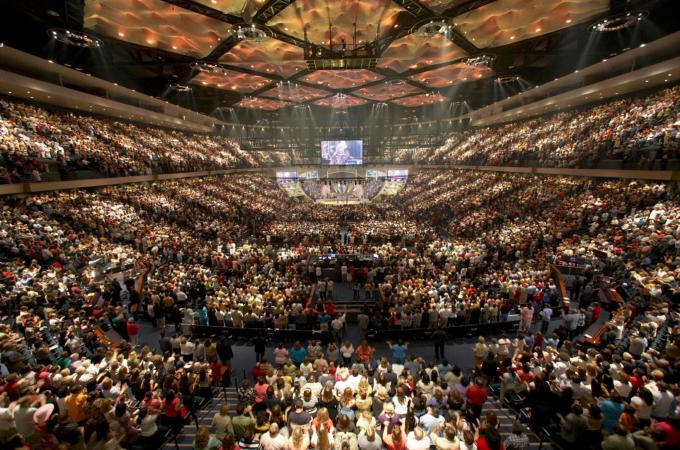Evangelicals and the First Amendment
According to reports, evangelical leaders are planning a gathering that will bring a thousand pastors to Washington later this spring to make plans for rallying their base on behalf of candidates supported by President Trump in the November elections.
If so, it goes without saying that this will touch off another fierce round of criticism in the Trump-averse media claiming political activism by evangelicals violates an American tradition of religion and politics separate.
It likewise hardly needs saying that many of those assailing evangelicals for supporting Trump--75% of white evangelicals in one recent poll--would be praising them if, by some miracle, they'd backed Hillary Clinton in 2016 and were now preparing to back Clinton-friendly candidates in the midterms.
Leaving here-and-now specifics aside, however, certain fundamental questions merit consideration in seeking sensible parameters for religious involvement in politics. A bit of history first.
In the High Middle Ages popes claimed authority to depose secular rulers; centuries later, troops of the French Revolution hauled Pope Pius VI out of Rome to stand trial (old and ill, he died en route in a provincial French town). The golden mean surely lies somewhere between these extremes.
And just here, in the U.S. at least, the two Religion Clauses of the First Amendment come into play.
The first says the government may not create an "establishment" of religion--the designation, that is, of a government-approved state church and, by extension, the direct support of religion precisely as religion. But the second, no less important than the first, says government may not inhibit free exercise of religion by individuals and groups.
Note that the first Religion Clause prohibits government from showing special favor to a particular church or even to religion in general. It does not forbid a friendly attitude by government toward religion or to religious groups that share the same vision of the common good that it holds. And--the key to the current debate about the evangelicals--it raises no objection to political activism by religious bodies exercising free exercise on behalf of their religious convictions.
But does a religious group have a right to get actively and directly involved in politics? And is that a good idea?
The answer to first question is: Almost certainly yes--religious groups have the same right to support and oppose policies and even politicians that non-religious groups have. That is implicit in the free exercise guarantee of the First Amendment. And Vatican Council II, speaking of the Catholic Church but using language that presumably would apply to any legitimate religious body, said religion should be free to "proclaim its teaching about society" and "pass moral judgment even in matters relating to politics, whenever the fundamental rights of man or the salvation of souls requires it" (Gaudium et Spes, 76).
But is direct religious involvement in politics it a good idea? Here contingent factors and prudential judgments come into play, especially if it's a matter of supporting or opposing particular candidates. Churches do well to approach that minefield with extreme caution. Usually a hands-off approach is best.
Even so, exceptions are possible. Opposing candidates whose policy positions are inimical to the values of a church or churches and supporting candidates committed to all they hold dear can make good sense. But if they do decide to enter the political fray, churches should have a clear-eyed recognition of the risks they run and the buffeting that comes with political activism. That goes for the evangelicals as much as anybody else.
- Russell Shaw is the author of more than twenty books. He is a consultor of the Pontifical Council for Social Communications and served as communications director for the U.S. Bishops.



















